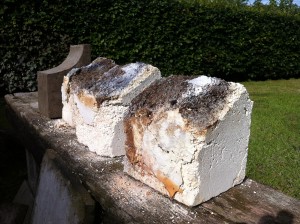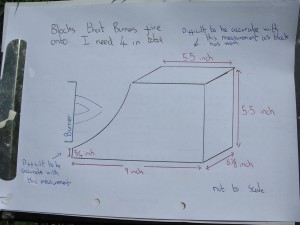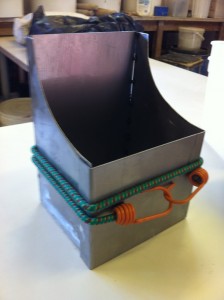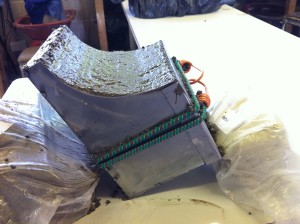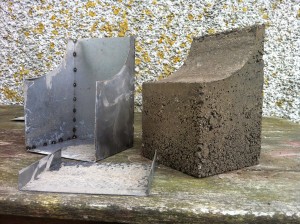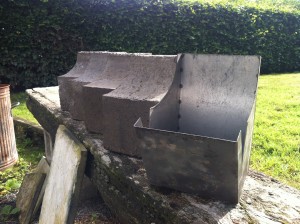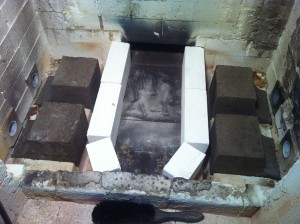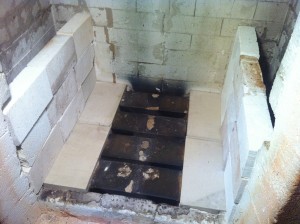After over 40 years of use, the four quarls on our kiln are looking slightly worn. Here they are in the kiln:
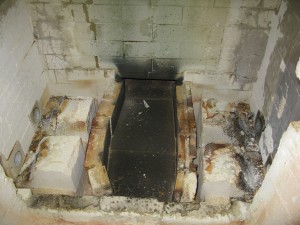 Quarls are basically curved blocks that deflect the flame from the burners, so the flame shoots up the side of the bag wall.
Quarls are basically curved blocks that deflect the flame from the burners, so the flame shoots up the side of the bag wall.
Here they are taken out of the kiln:
My first job was to try and get accurate measurements from the original quarls:
Next I had to produce a mould which replicates these dimensions. Fortunately my friends Adrian and Dylan Cross at Northern Kilns lent a hand with this by fabricating a metal mould for me. A wooden mould would have worked just as well though.
You need to paint a mould release agent (engine oil or Vaseline works well) onto the inside of the mould and then fill it with a coarse castable refractory. Castable refractory can be bought in 25 kilo bags and has a maximum firing temperature. Generally you should add a couple of hundred degrees to the temperature of your kiln, as things get a bit hotter close to the flame. We fire to 1280 degrees centigrade, so a 1500 degree- 1600 degree castable would make sense. The castable refractory is mixed like concrete with water. Avoid getting it too sloppy! It is then placed into the mould and forced down with a piece of wood. The curve can then be worked with a trowel.
It should then be left 24 hours to dry before being released from the mould.
Next it is best leaving the quarls to dry for 48 hours or so and then placing them in the kiln.
I then turn the kiln on a low heat for an hour, to make sure they are totally dry, then rebuild the rest of the kiln.
And hopefully we’ll get another 40 years of use out of them!!

